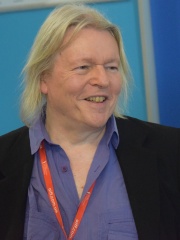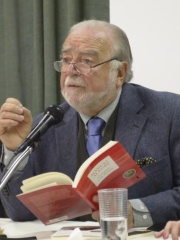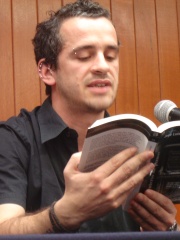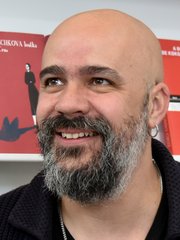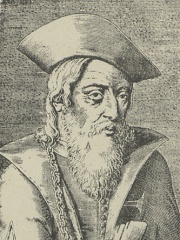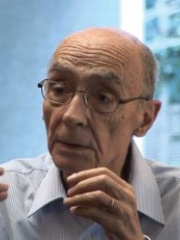
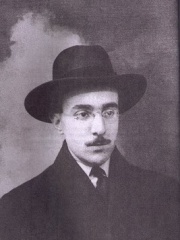
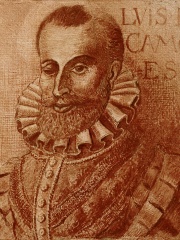
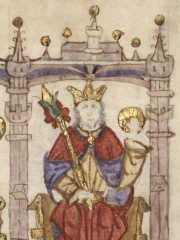
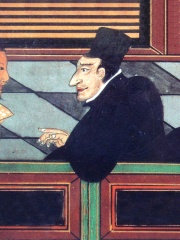
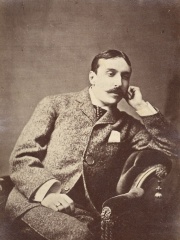
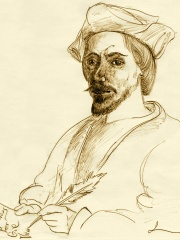
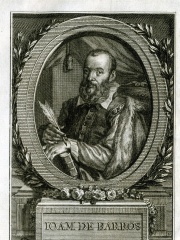
The Most Famous
WRITERS from Portugal
Top 10
The following people are considered by Pantheon to be the top 10 most legendary Portuguese Writers of all time. This list of famous Portuguese Writers is sorted by HPI (Historical Popularity Index), a metric that aggregates information on a biography's online popularity. Visit the rankings page to view the entire list of Portuguese Writers.

1. José Saramago (1922 - 2010)
With an HPI of 81.32, José Saramago is the most famous Portuguese Writer. His biography has been translated into 109 different languages on wikipedia.
José de Sousa Saramago (European Portuguese: [ʒuˈzɛ ðɨ ˈso(w)zɐ sɐɾɐˈmaɣu]; 16 November 1922 – 18 June 2010) was a Portuguese writer. He was the recipient of the 1998 Nobel Prize in Literature for his "parables sustained by imagination, compassion and irony [with which he] continually enables us once again to apprehend an elusory reality." His works, some of which can be seen as allegories, commonly present subversive perspectives on historic events, emphasizing the theopoetic human factor. In 2003 Harold Bloom described Saramago as "the most gifted novelist alive in the world today" and in 2010 said he considers Saramago to be "a permanent part of the Western canon", while James Wood praises "the distinctive tone to his fiction because he narrates his novels as if he were someone both wise and ignorant." More than two million copies of Saramago's books have been sold in Portugal alone and his work has been translated into 25 languages. A proponent of libertarian communism, Saramago criticized institutions such as the Catholic Church, the European Union and the International Monetary Fund. An atheist, he defended love as an instrument to improve the human condition. In 1992, the Government of Portugal under Prime Minister Aníbal Cavaco Silva ordered the removal of one of his works, The Gospel According to Jesus Christ, from the Aristeion Prize's shortlist, claiming the work was religiously offensive. Feeling disheartened by what he perceived as political censorship of his work, Saramago went into exile on the Spanish island of Lanzarote, where he lived alongside his Spanish wife Pilar del Río until his death in 2010. Saramago was a founding member of the National Front for the Defense of Culture in Lisbon in 1992.

2. Fernando Pessoa (1888 - 1935)
With an HPI of 78.77, Fernando Pessoa is the 2nd most famous Portuguese Writer. His biography has been translated into 76 different languages.
Fernando António Nogueira de Seabra Pessoa (; Portuguese: [fɨɾˈnɐ̃du pɨˈsoɐ]; 13 June 1888 – 30 November 1935) was a Portuguese poet, writer, literary critic, translator, and publisher. He has been described as one of the most significant literary figures of the 20th century and one of the greatest poets in the Portuguese language. He also wrote in and translated from English and French. Pessoa was a prolific writer both in his own name and approximately seventy-five other names, of which three stand out: Alberto Caeiro, Álvaro de Campos, and Ricardo Reis. He did not define these as pseudonyms because he felt that this did not capture their true independent intellectual life and instead called them heteronyms, a term he invented. These imaginary figures sometimes held unpopular or extreme views.

3. Luís de Camões (1524 - 1580)
With an HPI of 78.20, Luís de Camões is the 3rd most famous Portuguese Writer. His biography has been translated into 89 different languages.
Luís Vaz de Camões (European Portuguese: [luˈiʒ ˈvaʒ ðɨ kaˈmõjʃ]; c. 1524 or 1525 – 10 June 1580), sometimes rendered in English as Camoens or Camoëns ( KAM-oh-ənz), is considered Portugal's and the Portuguese language's greatest poet. His mastery of verse has been compared to that of Shakespeare, Milton, Vondel, Homer, Virgil and Dante. He wrote a considerable amount of lyrical poetry and drama but is best remembered for his epic work Os Lusíadas (The Lusiads). His collection of poetry The Parnasum of Luís de Camões was lost during his life. The influence of his masterpiece Os Lusíadas is so profound that Portuguese is sometimes called the "language of Camões". The day of his death, 10 June O.S., is Portugal's national day.

4. Denis of Portugal (1261 - 1325)
With an HPI of 71.71, Denis of Portugal is the 4th most famous Portuguese Writer. His biography has been translated into 49 different languages.
Denis (Latin: Dionysius Alphonsus, Portuguese: Dinis Afonso; 9 October 1261 – 7 January 1325), called the Farmer King (Rei Lavrador) and the Poet King (Rei Poeta), was King of Portugal from 1279 until his death in 1325. Dinis was the eldest son of Afonso III of Portugal by his second wife, Beatrice of Castile, and grandson of Afonso II of Portugal, Denis succeeded his father in 1279. He was married to Elizabeth of Aragon, who was later canonised as a saint of the Roman Catholic Church. Denis ruled Portugal for over 46 years. He worked to reorganise his country's economy and gave an impetus to Portuguese agriculture. He ordered the planting of a large pine forest (that still exists today) near Leiria to prevent soil degradation that threatened the region, and to serve as a source of raw materials for the construction of the royal ships. He was also known for his poetry, which constitutes an important contribution to the development of Portuguese as a literary language.

5. Judah Leon Abravanel (1460 - 1530)
With an HPI of 66.43, Judah Leon Abravanel is the 5th most famous Portuguese Writer. His biography has been translated into 21 different languages.
Judah Leon Abravanel or Abrabanel (Hebrew: יְהוּדָה בֶּן יִצְחָק אַבְּרַבַנְאֵל, romanized: Yehuda ben Yitzhak Abravanel) (c. 1460 Lisbon – c. 1530? Naples?), otherwise known by the pen name of Leo the Hebrew (in Latin: Leo Hebraeus; in Portuguese: Leão Hebreu; in Italian: Leone Ebreo; in Spanish: León Hebreo; in French: León l'Hebreu), was a Portuguese–Jewish philosopher, physician, and poet. His work Dialogues of Love was one of the most important philosophical works of his time.

6. Luís Fróis (1532 - 1597)
With an HPI of 65.35, Luís Fróis is the 6th most famous Portuguese Writer. His biography has been translated into 20 different languages.
Luís Fróis (1532 – 8 July 1597) was a Portuguese Catholic priest and missionary who worked in Asia, most notably Japan, during the second half of the 16th century. As a Jesuit, he preached in Japan during the Sengoku period, meeting with Oda Nobunaga and Toyotomi Hideyoshi. He is famous for writing The First European Description of Japan and History of Japan.

7. José Maria de Eça de Queirós (1845 - 1900)
With an HPI of 64.56, José Maria de Eça de Queirós is the 7th most famous Portuguese Writer. His biography has been translated into 39 different languages.
José Maria de Eça de Queiroz or Queirós (European Portuguese: [ˈɛsɐ ðɨ kɐjˈɾɔʃ]; 25 November 1845 – 16 August 1900) is generally considered to have been the greatest Portuguese writer in the realist style. Zola considered him to be far greater than Flaubert. In the London Observer, Jonathan Keates ranked him alongside Dickens, Balzac and Tolstoy.

8. Gil Vicente (1465 - 1536)
With an HPI of 64.42, Gil Vicente is the 8th most famous Portuguese Writer. His biography has been translated into 29 different languages.
Gil Vicente (Portuguese: [ˈʒil viˈsẽtɨ]; c. 1465 – c. 1536), called the Trobadour, was a Portuguese playwright and poet who acted in and directed his own plays. Considered the chief dramatist of Portugal he is sometimes called the "Portuguese Plautus," often referred to as the "Father of Portuguese drama" and as one of Western literature's greatest playwrights. Also noted as a lyric poet, Vicente worked in Spanish as much as he worked in Portuguese and is thus, with Juan del Encina, considered joint-father of Spanish drama. Vicente was attached to the courts of the Portuguese kings Manuel I and John III. He rose to prominence as a playwright largely on account of the influence of Queen Dowager Leonor, who noticed him as he participated in court dramas and subsequently commissioned him to write his first theatrical work. He may also have been identical to an accomplished goldsmith of the same name at the court of Évora; the goldsmith is mentioned in royal documents from 1509 to 1517 and worked for the widow of King John II, Dona Leonor. He was the creator of the famous Belém Monstrance, and master of rhetoric of King Manuel I. His plays and poetry, written in both Portuguese and Spanish, were a reflection of the changing times during the transition from Middle Ages to Renaissance and created a balance between the former time of rigid mores and hierarchical social structure and the new society in which this order was undermined. While many of Vicente's works were composed to celebrate religious and national festivals or to commemorate events in the life of the royal family, others draw upon popular culture to entertain, and often to critique, Portuguese society of his day. Though some of his works were later suppressed by the Portuguese Inquisition, causing his fame to wane, he is now recognised as one of the principal figures of the Portuguese Renaissance.

9. João de Barros (1496 - 1570)
With an HPI of 63.59, João de Barros is the 9th most famous Portuguese Writer. His biography has been translated into 25 different languages.
João de Barros (Portuguese pronunciation: [ʒuˈɐ̃w dɨ ˈβaʁuʃ]; 1496 – 20 October 1570), nicknamed the "Portuguese Livy", is one of the first great Portuguese historians, most famous for his Décadas da Ásia (Decades of Asia), a history of the Portuguese in India, Asia, and southeast Africa.
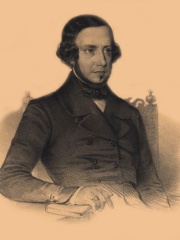
10. Almeida Garrett (1799 - 1854)
With an HPI of 63.37, Almeida Garrett is the 10th most famous Portuguese Writer. His biography has been translated into 28 different languages.
João Baptista da Silva Leitão de Almeida Garrett, 1st Viscount of Almeida Garrett (Portuguese pronunciation: [alˈmɐjðɐ ɣɐˈʁɛtɨ]; 4 February 1799 – 9 December 1854) was a Portuguese poet, orator, playwright, novelist, journalist, politician, and a peer of the realm. A major promoter of theater in Portugal he is considered the greatest figure of Portuguese Romanticism and a true revolutionary and humanist. He proposed the construction of the D. Maria II National Theatre and the creation of the Conservatory of Dramatic Art.
People
Pantheon has 41 people classified as Portuguese writers born between 1261 and 1974. Of these 41, 5 (12.20%) of them are still alive today. The most famous living Portuguese writers include Christopher Hampton, Manuel Alegre, and José Luandino Vieira. The most famous deceased Portuguese writers include José Saramago, Fernando Pessoa, and Luís de Camões. As of April 2024, 1 new Portuguese writers have been added to Pantheon including Afonso Cruz.
Living Portuguese Writers
Go to all RankingsChristopher Hampton
1946 - Present
HPI: 59.74
Manuel Alegre
1936 - Present
HPI: 55.70
José Luandino Vieira
1935 - Present
HPI: 54.99
José Luís Peixoto
1974 - Present
HPI: 48.26
Afonso Cruz
1971 - Present
HPI: 43.18
Deceased Portuguese Writers
Go to all RankingsJosé Saramago
1922 - 2010
HPI: 81.32
Fernando Pessoa
1888 - 1935
HPI: 78.77
Luís de Camões
1524 - 1580
HPI: 78.20
Denis of Portugal
1261 - 1325
HPI: 71.71
Judah Leon Abravanel
1460 - 1530
HPI: 66.43
Luís Fróis
1532 - 1597
HPI: 65.35
José Maria de Eça de Queirós
1845 - 1900
HPI: 64.56
Gil Vicente
1465 - 1536
HPI: 64.42
João de Barros
1496 - 1570
HPI: 63.59
Almeida Garrett
1799 - 1854
HPI: 63.37
Francisco de Sá de Miranda
1491 - 1558
HPI: 62.89
Tomé Pires
1468 - 1540
HPI: 62.88
Newly Added Portuguese Writers (2025)
Go to all RankingsOverlapping Lives
Which Writers were alive at the same time? This visualization shows the lifespans of the 22 most globally memorable Writers since 1700.

